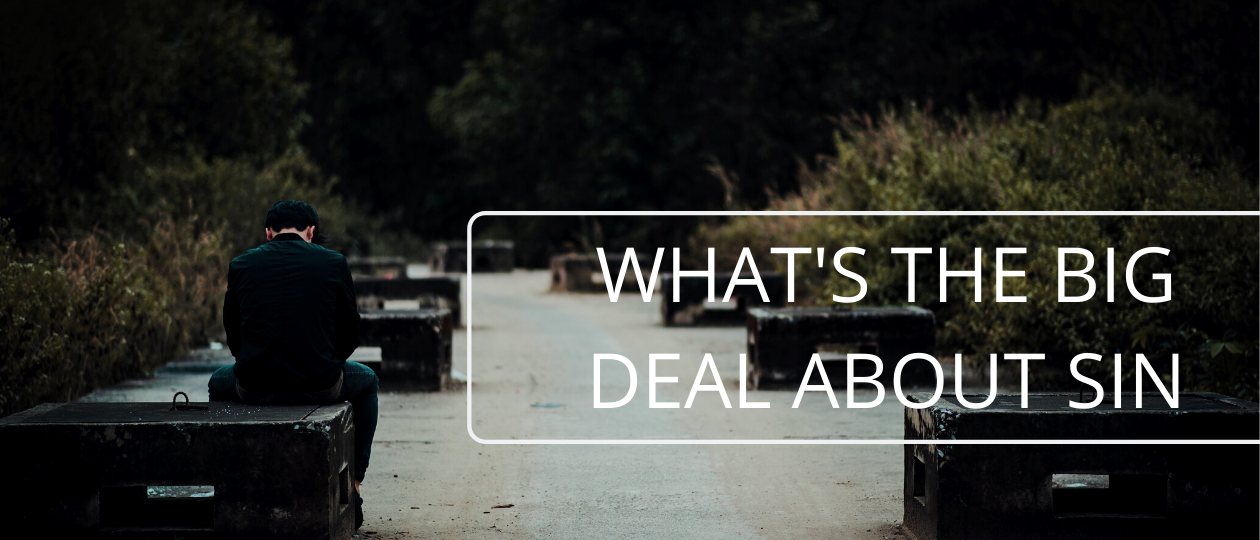What's the big deal about sin
Why don’t we just do whatever we want?
This is a question that sometimes comes up when I talk to people about my work. Everybody has some concept of what it means to step out of line and do something morally wrong. I grew up in a conservative Christian household, calling it “sin,” as I’m sure many of you did. But all this word really means is “to miss the mark.”
Many times, I’ve talked about the two systems of right and wrong that I believe we can each freely choose between the system of Law and the system of Grace. Law is the what we continually see in the physical world, and in our own civilization. If you do good, you’re repaid in good. If you do bad, you’re repaid with bad. It’s simple, makes sense, and not one of us can earn a happy ending through it. The other system, on the other hand, is really weird. Living under Grace means that we get good even when we do good—or more accurately, we get good eventually.
Now, if I told you that tomorrow all of your outstanding financial debts would be magically forgiven, no matter what, you’d probably take the opportunity to go on the shopping spree of your life! So why not do the same here? When the apostle Paul was first teaching about grace two-thousand years ago, this was one of the first questions they asked him as well, and I’ll give you more or less the same answer he did. Because the spiritual laws that we talk about here are not arbitrary rules designed to stop you from having fun, they’re simply facts about how human beings function best. Yes, grace can work all things to your eventual benefit, but in the short term, doing something you believe is wrong means pain. I think most of us really know that already, but in the moment, it is very easy to forget, isn’t it?
Physically speaking, the job of deciding whether we’re living in love or fear, in peace and joy or in anxiety and stress, is done by the hypothalamus. When you make a decision that is in harmony with the principles of love and with your own conscience, the hypothalamus triggers the release of oxytocin. According to my friend, Dr. Ben Johnson, if they ever figured out how to put oxytocin in a pill, it would be the best-selling pharmaceutical of all time, and would probably eliminate about 50 percent of all the other pharmaceuticals on the market. Not only does it give you more energy, increase higher brain functions, and all sorts of other beneficial effects, it also causes you to have more positive thoughts and feelings, even increasing your sense of self-worth!
You can actually see the opposite effect in action very easily. The whole premise of a lie-detector test is that it works by detecting stress. While it is by no means a perfect test, it works in the majority of cases because physiological stress is the normal human response to making a choice that goes against your conscience or is otherwise based in fear. If you’ve been with me for any length of time, you know that physiological stress can eventually lead to nearly any sort of problem you could name.
So yes, if you’re living under the law of Grace, I believe even your mistakes will work to your good eventually. But maybe that means you suffer a little now so that you can learn to live in a way that is better for you in the long run. I’ve certainly been through stretches like that.
The good news is that you don’t need to do it the hard way. Just like a lie-detector can sense stress, your conscience can know your best solution for any situation, what I sometimes call win/win/win. Dr. Bruce Lipton talks about a “vibe” that does this in his wonderful book, The Honeymoon Effect, but the concept is the same whatever you choose to call it: a signal from your unconscious mind that points the way to the most loving decision you can make in the present moment. But this instrument has to be maintained. The more you use it, the more you cultivate it and the more sensitive and accurate it will become. Ignore it over and over again, and you may stop hearing it entirely until you take the time to start listening and recalibrate.
This week, I recommend you take a look at your life and ask whether you are living by your conscience, or whether you may be taking grace for granted and robbing yourself of the happiness it can offer you. As much as we might like things to be different, the fact is that even when you’re given everything for free, lasting happiness only comes from hard work.
Have a blessed, wonderful day!
Alex Loyd




Add a Comment